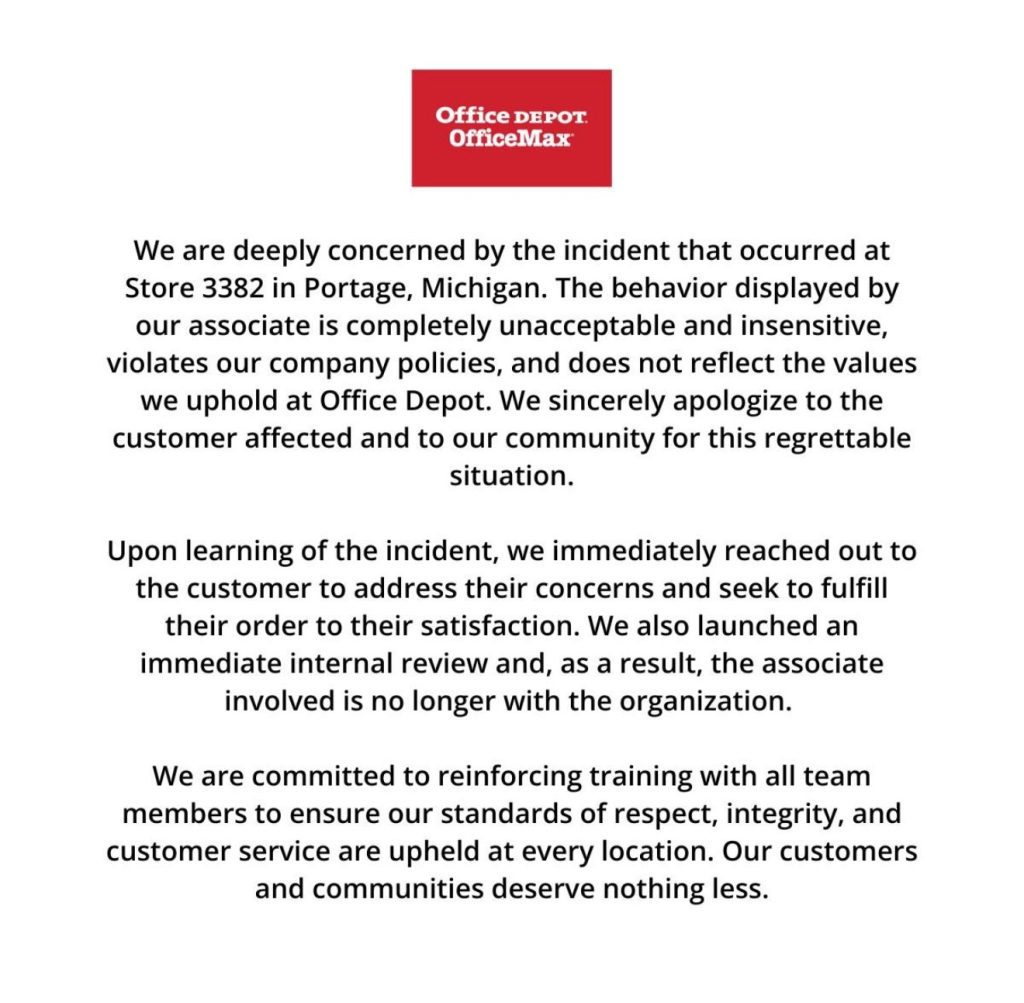Office Depot Apologizes and Fires Michigan Staff Who Refused to Print Charlie Kirk Tribute Posters and Called Them “Propaganda”
The story began like so many modern controversies do, with a single customer encounter that spiraled into a national debate. In Portage, Michigan, a man walked into an Office Depot to request tribute posters honoring Charlie Kirk. What happened next quickly made headlines. The employees at that store refused to print the posters, allegedly calling them “propaganda.” In an age where emotions are already running high, the incident struck a nerve and spread across social media like wildfire. Within hours, clips and images of the receipt, the posters, and the refusal went viral, sparking anger and outrage from those who saw the move as not just bad customer service but outright disrespectful.
The refusal instantly became a trending story, amplified by commentators online who argued that a company with the size and reach of Office Depot should never allow personal opinions of employees to override service. The term “propaganda,” used to dismiss a customer’s request for tribute flyers, carried heavy weight. For many, it wasn’t just about printing paper. It was about whether respect would be shown in a time of mourning and remembrance.
As the pressure mounted, Office Depot was quick to respond. The company released a formal statement acknowledging what had happened and expressing regret. Their words were direct and firm. They said the behavior of their associate was “completely unacceptable and insensitive,” adding that it violated company policies and did not reflect the values of respect and integrity that they claimed to uphold. The statement went further, with an apology to both the customer and the broader community who had been affected by the controversy.
What set this apology apart from so many others was the immediate action that followed. Office Depot confirmed that the employee responsible was no longer with the company. They emphasized that an internal review had been launched as soon as the situation came to light, and the outcome was termination. This decisive step was clearly meant to show that the company was taking accountability seriously.

The company also used the moment to make a broader promise. They pledged to reinforce training with all staff across their stores, making sure that respect, integrity, and proper customer service remain at the center of their culture. They reminded the public that customers and communities deserve nothing less. In many ways, this was not just damage control but an effort to rebuild trust with those who might now question whether similar incidents could happen elsewhere.
For supporters of Charlie Kirk, the apology and firing may not erase the sting of what happened, but it does mark a moment where a corporation chose to step in and draw a line. The message was clear: personal bias cannot interfere with serving the public. For critics, it raised questions about how far employers should go when policing the words and decisions of staff. Regardless of where people stand, the controversy has become another example of how deeply divided times can turn even an interaction at a copy counter into a national flashpoint.
The saga serves as a reminder of the world we live in today. One customer experience, captured and shared, can ripple out into a story that forces the hand of major corporations. In this case, the firing of employees and a sweeping apology from Office Depot show just how much power these moments hold. At its heart, the story is about respect—respect for customers, respect for communities, and respect for the values people want to see reflected in the places they do business.



